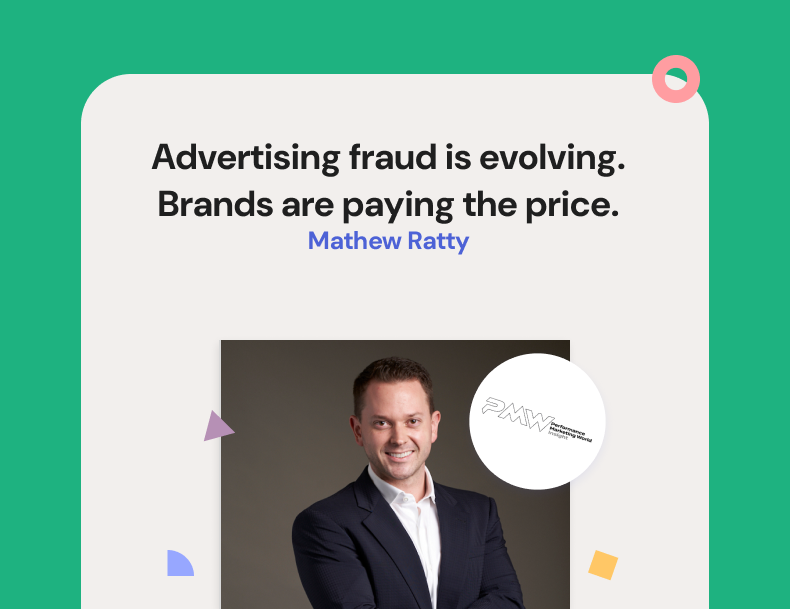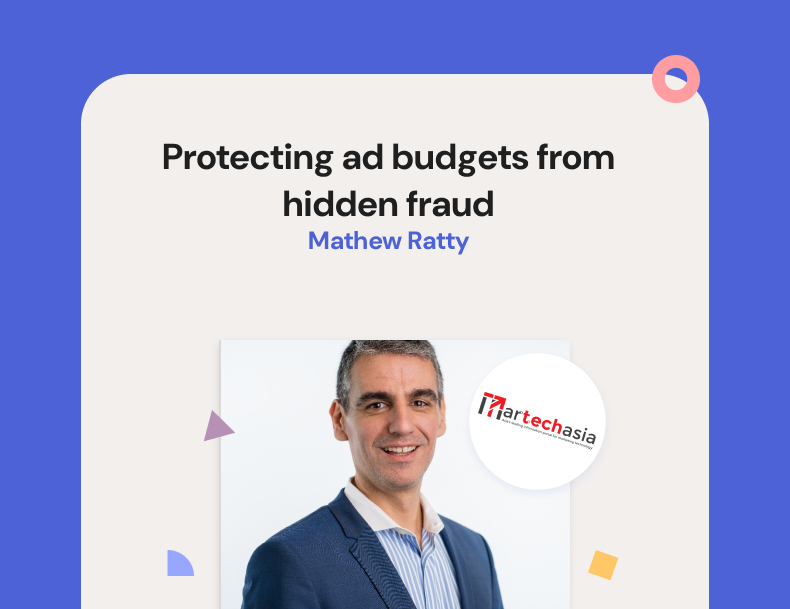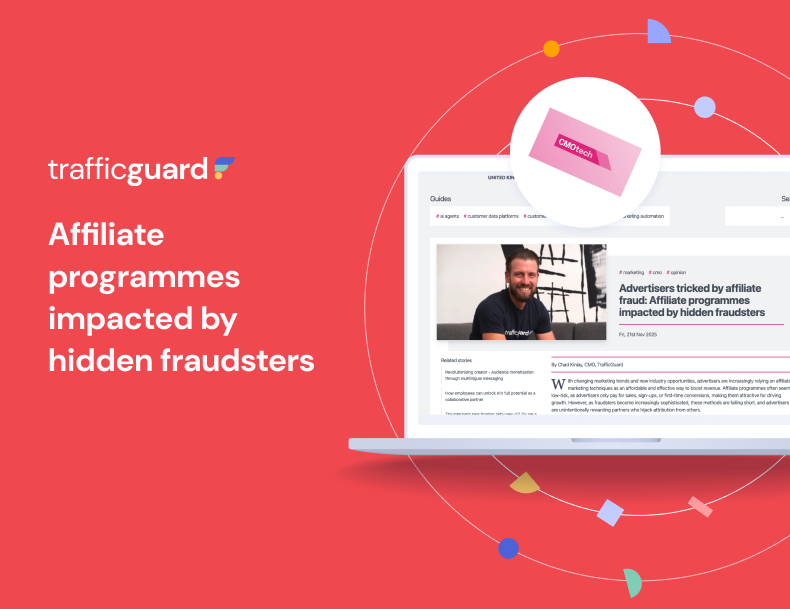How valid is your traffic: Invalid traffic and its impact on US sportsbooks

Trafficology spoke with CEO & Co-Founder of TrafficGuard Mathew Ratty about the importance of mitigating invalid traffic and its impact on the US sportsbook market
WITH LEGISLATION RELAXING IN THE US, WE ARE SEEING NEW SPORTSBOOKS AND MORE OFFSHORE OPERATORS COMING TO THE STATES. FACING FIERCE COMPETITION, HOW CAN OPERATORS INNOVATE?
The US sports betting market has grown exponentially over the past few years. Online sports betting was almost entirely outlawed in the US as recently as six years ago. The loosening of legislation has led to an influx of new bettors for sportsbooks to engage with and monetise. This has created a number of opportunities for sportsbooks to expand into new states for aggressive expansion. The challenge, however, is to stand out in an increasingly competitive market. To achieve this, sportsbooks need to ensure they maximise their ROI and reach of digital advertising campaigns. The best start to this is to tackle the problem of invalid traffic (IVT).
IVT encompasses any traffic devoid of genuine new user interest, manifesting in the form of bots, low-quality engagement or returning users that fail to contribute to net new incremental growth. Engagement from these sources, lacking in authenticity, artificially inflate campaign metrics,
consequently driving up advertisers’ costs. Compounded by its undetectable nature, IVT results in significant losses for sportsbooks.
Addressing IVT presents an opportunity for sportsbooks to gain a competitive advantage, as many remain unaware of its impact. By proactively mitigating IVT and safeguarding advertising budgets, sportsbooks can redirect previously wasted resources towards quality traffic, thereby unlocking greater returns on investment and fostering further incremental growth.
HOW IS SHIFTING LEGISLATION CHANGING APPROACHES TO GENERATING TRAFFIC?
The priority of every business should be compliance with local legislation and data privacy requirements. The recent relaxation of legislation has led to increased overall traffic activity. While a portion of this traffic is genuine, it is often accompanied by a significant influx of IVT. As paid advertising experiences a notable surge, marketing campaigns are reaching broader audiences. However, the presence of invalid clicks complicates the ability to predict campaign outcomes or gather reliable information.
Without an accurate dataset to inform marketing campaigns, optimising expenditure becomes challenging, hindering efforts to reach new bettors effectively. To attract and retain players in new states, sportsbooks have introduced more promotions and bonuses, such as free bets. This drives new traffic but comes with its own challenges as fraudulent actors use bots to exploit these promotions for their own gain, leading to $0 value for the sportsbook.
ARE THERE ANY STATES YOU FEEL NEW SPORTSBOOKS CAN PARTICULARLY THRIVE IN AND WHY?
What is important is being able to adapt to locations. It isn’t about particular states, it’s about having the tools to be a success no matter where you operate. With more and more states changing their legislation, sportsbooks have increased freedom to expand across the country. The challenge is that invalid and fraudulent traffic (which follows the money) is making it more difficult to thrive in the market. If it continues unchecked, sportsbooks won’t see their investments adequately returned, no matter which state
they establish themselves in.
WHAT ARE SOME POINTERS YOU WOULD GIVE TO SPORTSBOOKS LOOKING TO MAXIMISE THEIR ROI IN AMERICA?
To maximise returns, sportsbooks must address the fundamental issues within their marketing campaigns. Often, sportsbooks incur significant losses unknowingly, as fraudulent traffic undermines budgets and distorts campaign data. To outperform competitors in America and achieve desired returns, sportsbooks must prioritise combating invalid traffic. This necessitates the development of a comprehensive strategy, beginning with gaining visibility into the nature of the traffic they are attracting.
By monitoring the traffic coming into your systems, you gain a clearer understanding of where traffic is
coming from and can identify any suspicious activity. Sportsbooks can then add a layer of defence to protect their budgets. The data can then be used to inform decision making for future campaigns, giving them a greater chance of success.
CAN YOU TELL ME A BIT MORE ABOUT FRAUDULENT TRAFFIC AND HOW A SPORTSBOOK CAN TELL IF TRAFFIC IS LEGITIMATE OR NOT?
Distinguishing between fraudulent and invalid traffic is crucial. While ad fraud garners significant attention,
its less glamorous counterpart, IVT, often flies under the radar. Fraudulent traffic encompasses any traffic
originating from non-genuine or non-human sources. Various forms of fraudulent traffic yield different adverse effects; for instance, bots can artificially inflate impressions and exploit promotional offers, while disingenuous engagement (manifested as minimal time spent on the site) drives up costs without yielding returns.
On the other hand, invalid traffic, such as hyperengaged returning users repeatedly clicking on paid ads throughout the week, primarily serves to inflate Customer Acquisition Costs (CACs). This occurs
when users access the site through ad links when they would have visited organically anyway. What exacerbates this situation is the lack of conversion despite their heightened engagement. Non-genuine engagement has a substantial impact on budgets, particularly by squandering valuable spend on clicks that fail to result in conversions. TrafficGuard’s clients have reported losing 36.2% of their ad spend on clicks originating from invalid sources before implementing a defensive strategy.
In worst-case scenarios, large volumes of IVT can lead to traffic sources appearing more lucrative than they are, which can then lead to marketers diverting time and spend towards channels that don’t produce valid opportunities. Different types of IVT include accidental clicks, clicks from existing customers, known data centre traffic, ad injection, ad stacking, app install farms, auto-refresh, bots, click injection and much more. In user-agent spoofing, malicious actors alter elements of the user agent string to obscure details of their traffic. This manipulation can involve making high volumes of traffic from a single device appear as numerous individual advertising engagements from multiple devices. An ad verification platform can accurately identify and mitigate fraudulent activity on behalf of sportsbooks. These platforms verify traffic in real-time, proactively identifying any suspicious activity so that sportsbooks can protect themselves.
HOW CAN SPORTSBOOKS IN THE US MAXIMISE THE EFFICIENCY OF THEIR TRAFFIC?
To optimise campaign effectiveness, sportsbooks must ensure the traffic they receive originates from users genuinely interested in converting. Identifying and mitigating IVT and fraud are critical steps in achieving this goal. Bots and existing customers present significant challenges for sportsbooks as they can deplete campaign budgets. Returning users, already part of the customer base, often habitually click on paid brand advertisements when accessing the site via search engines. However, these clicks do not necessarily reflect new user behaviour; instead, they act as expensive bookmarks, inflating CACs without generating
incremental conversions. Consequently, genuine new users may miss out on engaging with the ad.
To address this issue, sportsbooks can implement custom validation rules to limit the number of times a user can click on an ad within a certain timeframe. This measure prevents users from repeatedly viewing the same ad during a campaign, significantly reducing the cost of acquiring each client.
Furthermore, employing shadow campaigns can enhance these efforts by creating duplicate campaigns with lower cost-per-click (CPC) rates. These shadow campaigns effectively redirect hyper-engaged returning users away from the primary campaign, thus mitigating the risk of increased costs. As a result, sportsbooks can be confident that their primary campaign traffic primarily comprises new leads with a higher likelihood of conversion.
Read more 👉 here.
Get started - it's free
You can set up a TrafficGuard account in minutes, so we’ll be protecting your campaigns before you can say ‘sky-high ROI’.
At TrafficGuard, we’re committed to providing full visibility, real-time protection, and control over every click before it costs you. Our team of experts leads the way in ad fraud prevention, offering in-depth insights and innovative solutions to ensure your advertising spend delivers genuine value. We’re dedicated to helping you optimise ad performance, safeguard your ROI, and navigate the complexities of the digital advertising landscape.
Subscribe
Subscribe now to get all the latest news and insights on digital advertising, machine learning and ad fraud.







